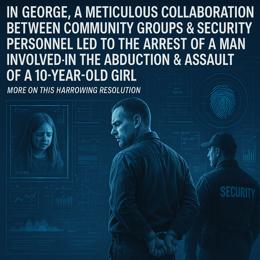Image created by AI
AfriForum Raises Concerns as SAPS Reservist Program Declines, Emphasizes Their Expanding Neighbourhood Watches
Amid dwindling numbers in the South African Police Services (SAPS) reservist program, AfriForum, a prominent civil rights organization, has voiced significant concerns over what it views as a flagrant disregard for community safety management by the national police force. Over the past ten years, the reservist program has seen a dramatic decline, with numbers dropping by a striking 90%, signalling a reduction from a substantial community-driven policing effort to a marginal role within the national safety strategy.
This decrease comes at a time when criminal activities are on a noticeable rise, making the role of reservists more crucial than ever in supplementing the significantly stretched thin regular police force. AfriForum has pinpointed this trend concerning an increase in its neighbourhood watches, which have seen growth of approximately 15% in the last two years, now reaching a robust network of 177 units across the country.
Jacques Broodryk, AfriForum’s Chief Spokesperson for Community Safety, expressed frustration with SAPS's management of the reservist program. "The drastic reduction in reservist numbers points to either gross mismanagement or a deliberate sidelining of a critical community policing mechanism," said Broodryk. This situation spurred AfriForum to file a formal request under the Public Access to Information Act (PAIA), seeking detailed information on the program’s management, including recruitment figures, current reservist statistics, and training schedules.
Criticism of SAPS extends to their financial allocations, with the police service budgeting around R6 billion annually to recruit an additional 30,000 officers by 2026 while allowing the reservist program to wane. The contrast in funding priorities has raised questions about the equitable distribution of resources aimed at enhancing national security.
With community safety a paramount concern, AfriForum is advocating for a reinvigoration of the reservist program, insisting that SAPS makes substantial efforts to recruit and train community members willing to support law enforcement. Their proactive stance is also a call to action, suggesting that if SAPS continues to downplay the importance of reservists, community members should consider joining local neighborhood watches, providing a grassroots solution to a national crisis.
AfriForum’s effort to demand accountability and transparency from SAPS is a significant step toward addressing the deficiencies in a crucial area of public safety, emphasizing the need for an engaged and proactive community response to crime.










